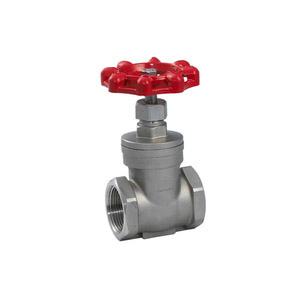The Materials Behind the Durability and Performance of Screwed Gate Valves
2024-06-13
In the realm of fluid control, the quality and performance of a valve can significantly influence the efficiency and reliability of an entire system. Among the various types of valves, screwed gate valves are particularly valued for their robust performance in controlling fluid flow. A crucial factor that determines the effectiveness of these valves is the materials used in their construction. This blog explores the primary materials employed in the manufacture of screwed gate valves and how these materials impact their durability and performance.
Understanding Screwed Gate Valves
Screwed gate valves are designed to control the flow of liquid or gas through a pipeline by raising or lowering a gate (or wedge) inside the valve body. They are commonly used in applications where a straight-line flow of fluid and minimal restriction is desired. The materials used in constructing these valves play a pivotal role in ensuring their longevity, efficiency, and suitability for various industrial applications.
Primary Materials Used in Screwed Gate Valves
1. Cast Iron
Cast iron is one of the most common materials used in the construction of screwed gate valves. It is favored for its excellent strength and wear resistance, making it suitable for low-pressure applications. The robust nature of cast iron ensures that the valve can withstand mechanical stresses and impacts, contributing to its durability. However, cast iron is susceptible to corrosion, which can limit its use in certain environments.
2. Carbon Steel
Carbon steel is another popular material for screwed gate valves, especially in applications involving higher pressures and temperatures. Its high tensile strength and toughness make it ideal for demanding industrial conditions. Carbon steel valves offer good resistance to wear and tear, and with proper coating and maintenance, they can also provide decent corrosion resistance. These properties make carbon steel valves reliable and long-lasting in various applications, from oil and gas to water treatment.
3. Stainless Steel
Stainless steel is highly valued in valve construction due to its exceptional corrosion resistance and strength. Screwed gate valves made from stainless steel are ideal for harsh environments, including those involving corrosive fluids and high temperatures. The chromium content in stainless steel forms a passive oxide layer that protects the valve from rust and corrosion, significantly extending its service life. Additionally, stainless steel valves maintain their structural integrity under extreme conditions, making them suitable for critical applications in chemical processing, pharmaceuticals, and food and beverage industries.
4. Brass
Brass is often used in screwed gate valves for its excellent machinability and good corrosion resistance. It is particularly suitable for use in water supply systems, HVAC applications, and other low to medium pressure environments. Brass valves offer a balance of durability and performance, with the added benefit of being resistant to dezincification, a form of corrosion that can weaken the valve over time. The relatively low cost of brass compared to stainless steel also makes it an attractive option for many applications.
5. Bronze
Bronze, an alloy of copper with tin, provides excellent resistance to corrosion and wear, making it a preferred material for marine applications and other environments where exposure to saltwater is common. Bronze screwed gate valves are known for their durability and reliability in corrosive environments. The material's natural resistance to biofouling (the accumulation of microorganisms, plants, algae, or animals on wetted surfaces) further enhances its suitability for use in water and wastewater treatment facilities.
Impact of Materials on Durability and Performance
Corrosion Resistance
The ability of a valve to resist corrosion is critical for its longevity and reliable performance. Materials like stainless steel and bronze offer superior corrosion resistance, ensuring that the valve can withstand harsh environments and maintain its functionality over time. This resistance reduces the frequency of maintenance and replacements, resulting in lower operational costs.
Strength and Wear Resistance
Materials such as carbon steel and cast iron provide excellent strength and wear resistance, enabling the valve to handle high pressures and mechanical stresses. This strength is essential for applications involving heavy-duty operations, where the valve must endure frequent opening and closing cycles without degrading.
Temperature Tolerance
Different materials respond differently to temperature variations. Stainless steel, for instance, maintains its integrity under high temperatures, making it suitable for applications involving hot fluids. On the other hand, brass and bronze are better suited for moderate temperature ranges, offering reliable performance without significant expansion or contraction that could affect the valve's sealing capability.
Suitability for Specific Applications
The choice of material impacts the valve's suitability for specific applications. For example, brass and bronze are preferred for water-related applications due to their resistance to corrosion and biofouling. Stainless steel's excellent chemical resistance makes it ideal for the chemical and pharmaceutical industries, while carbon steel's strength is indispensable in high-pressure environments like oil and gas.
Conclusion
The materials used in the construction of screwed gate valves play a crucial role in determining their durability, performance, and suitability for various applications. From the corrosion resistance of stainless steel to the strength of carbon steel and the cost-effectiveness of brass, each material offers unique advantages that cater to specific industrial needs. By understanding these material properties, engineers and decision-makers can select the right screwed gate valve that meets their operational requirements and ensures long-term reliability and efficiency.



